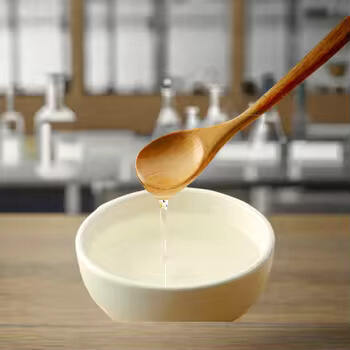Municipal Administration of He Xi Nan, Zhonghe Road, Jianye District, Nanjing City, Jiangsu Province
Municipal Administration of He Xi Nan, Zhonghe Road, Jianye District, Nanjing City, Jiangsu Province
Fructose and HFCS : These are other sorts of sugars which we get in pretty a good deal anything that is on liquid foundation, not to say the whole thing regionally inside the grocery store. They taste great and give foods a nice sweet flavour, however eating lots of them is not very good for us. In this article, we will explore what fructose and HFCS actually are, how they make their way into our food supply, and why eating too much of either is harmful to the body.
Fructose is a simple sugar found in many fruits, including apples, pears and strawberries. It is a sugar that makes fruit-containing foods taste good. Fructose is also an added sugar in many canned or processed foods due to its sweetness. Fructose, for example may be present in juices or candies even some cereals. Unfortunately, what is found in sodas/soft drinks like the first one named true and mean-to-humans coke are sweetened with HFCS(high-fructose corn syrup) which is literally sugar extract from your seasonings of fats such as lipids added to three bags inside on yesterday cutting part you must get this! I mean you can find it in just about every processed anything but particularly sodas, snacks and desserts. Sugars in general are useful for improving tasteing properties of foods, and they have been exploited frequently to make high-fructose corn syrup which is a blend of fructose and other monosaccharides.
Over-consumption of fructose and HFCS may result in various health issues. For instance, consuming too much of these sugars in our diet can result to weight gain that may eventually lead to obesity. Obesity is a very dangerous disease and can create lot of new health problems along with this like diabetes, cardiovascular diseases or blood pressure issues. These health problems hold us back from living a healthy and active lifestyle, and they also brings impact on how we feel everyday. Hence, we must be careful about our intake of fructose and HFCS.
However, our bodies respond to fructose and HFCS in a different way than they do potentially healthier sugars (such as glucose or lactose). Another type of sugar, glucose for instance which signals when you have eaten enough. Unfortunately, fructose and HFCS do not have the same effect to make us feel full. This leads to us perhaps not feeling full even after we have already eaten, and eat more than necessary.

Also, due to its processing in our bodies fructose and HFCS are not like other sugars. Although glucose can be utilised by all cells in our body as energy, fructose is processed only through the liver. Our liver, if we take in too much fructose at once… is overtaken and can not clear it all out fast enough. Over time this can cause a health problem called fatty liver disease, which is very serious and will otherwise be harmful for our total body.

High fructose corn syrup is used as an ingredient in many processed foods and beverages, such as soda, candy and baked goods. It is incorporated in food to a great extent, one leading source of HFCS we should not even think about who it belongs because it direct contribution toward obesity. One of the risks that we assume when we consume HFCS is to develop type 2 diabetes. Studies have found that even drinking HFCS sodas can increase this risk substantially. Moreover, HFCS can stimulate increases in triglycerides which are a type of fat found in blood. High triglycerides can leadd to heart disease, which is yet another serious health condition.

When fatty liver disease progresses it can cause other major health problems like liver damage, cirrhosis- the inactive or dormant phase of a chronic inflammatory disorder affecting the tissue which is distorted and scarred after being exposed to harmful stimuli for some time – as well as a scenario where your cellular phone network are useless. The condition also can progress to liver cancer in some cases, a life-threatening outcome. So, we need to minimize the consumption of fructose and HFCS in order for our liver — as well as ourselves in general from becoming compromised.